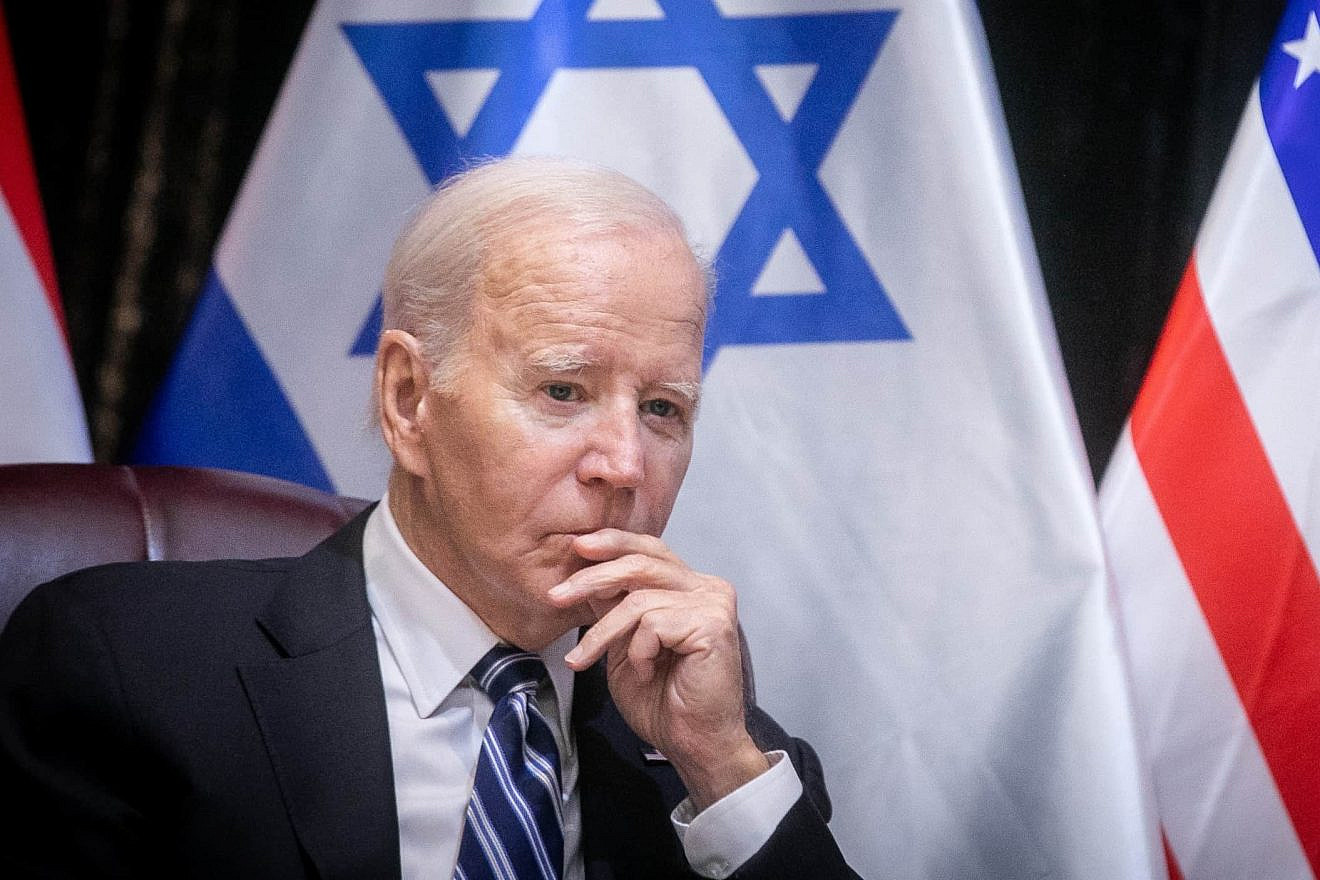U.S. President Joe Biden on Thursday appeared to describe Israel’s military response to Hamas’s Oct. 7 massacre as “over the top,” adding that he was seeking a “sustained pause” in the war.
“I’m of the view, as you know, that the conduct of the response in Gaza, in the Gaza Strip, has been over the top,” Biden told reporters at the White House.
“I’ve been pushing really hard, really hard, to get humanitarian assistance into Gaza. There are a lot of innocent people who are starving, a lot of innocent people who are in trouble and dying, and it’s gotta stop,” he said.
On Wednesday, Biden had used the phrase “over the top” in reference to Hamas’s counteroffer to a U.S.-backed framework proposal for a ceasefire-for-hostages deal between Israel and the Palestinian terror group.
“I’ve been working tirelessly for this deal—how can I say this without revealing it—to lead to a sustained pause in the fighting, the actions taking place, in the Gaza Strip. And, because I think if we can get the delay for that, an initial delay, I think that we would be able to extend that so that we can increase the prospect that this fighting in Gaza changes,” said Biden on Thursday.
The White House declined to elaborate on or clarify the American leader’s remarks.
The comments come as the Democratic president is under intensifying domestic pressure to compel Jerusalem to end the fighting ahead of the November election in the United States.
‘A long and in-depth meeting in private’
Earlier this week, Israeli Prime Minister Benjamin Netanyahu said in an address to the nation that his government would not agree to the “delusional demands” Hamas is making as part of ceasefire negotiations.
Bowing to the terrorist organization’s demands would lead to another massacre and a “major disaster” that no Israeli citizen can accept, he emphasized, adding: “We are on our way to total victory. Total victory over Hamas will not take years. It will take months. Victory is within reach.”
Also Wednesday, Netanyahu and U.S. Secretary of State Antony Blinken “held a long and in-depth meeting in private” in Jerusalem.
During his trip to Israel, the top U.S. diplomat stressed it was “essential” to go ahead with ceasefire talks, noting that “there’s still a lot of work to be done. But we continue to believe that an agreement is possible and indeed essential, and we will continue to work relentlessly to achieve it,” Blinken said.
Israel has repeatedly rejected proposals for a permanent ceasefire and maintains that it will continue in its goal to eradicate Hamas, return the remaining 136 captives and ensure that Gaza can never again pose a threat to the Jewish state.
For its part, the Biden administration is reportedly bucking decades of U.S. foreign policy by considering a plan to unilaterally recognize a Palestinian state, despite deep opposition to the move within Israel.
Both Axios and The New York Times reported about this potential major shift in the American approach towards Palestinian statehood, which hitherto has emphasized direct negotiations between Jerusalem and Ramallah.
In the months since Hamas’s Oct. 7 terrorist assault, the Biden administration has been pushing for Palestinian statehood as part of a major normalization pact and regional security initiative between Israel and Saudi Arabia.
The Palestinian issue was not reportedly seen as a major obstacle to a Jerusalem-Riyadh detente before the Hamas attack, but Washington’s stance has apparently changed.
According to the most recent “Peace Index” survey released by Tel Aviv University, when asked whether they support the creation of a “Palestinian” state alongside Israel, 66% of Jewish respondents said they opposed such a move, while 27% expressed support for the creation of a “Palestine.”
Meanwhile, Biden on Thursday issued a memorandum requiring allies who receive U.S. military aid to provide “credible and reliable written assurances” of their adherence to international law.
Under the new guidelines, the State Department and the Department of Defense will be required to issue periodic reports on whether American allies are meeting the requirements.
The memo does not mention specific countries but comes amid increasing calls in the U.S. to condition aid to Israel due to its offensive to eliminate Hamas.
On Feb. 1, the Biden administration issued an executive order sanctioning “persons undermining peace, security and stability in the West Bank,” citing “high levels of extremist settler violence, forced displacement of people and villages and property destruction.”
Adopting what it calls a “holistic approach” to the Middle East regional crisis, the White House named four sabras, or native-born Israelis, whom it is sanctioning: David Chai Chasdai of Givat Ronen; Yinon Levi of Meitarim Farm; Einan Tanjil of Kiryat Ekron; and Shalom Zicherman of Mitzpe Yair.
In response, Netanyahu said that “the overwhelming majority of residents in Judea and Samaria are law-abiding citizens, many of whom are currently fighting—as conscripts and reservists—to defend Israel.
“[My government] acts against all Israelis who break the law, everywhere. Exceptional measures are unnecessary,” added the premier.


























